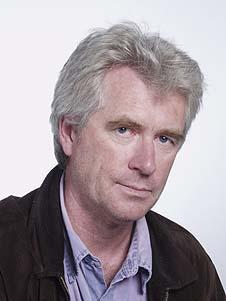Nurturing new knowledge sector
Independent policy research organisations are rapidly emerging in the Global South, but little is known about their interaction with universities and policymakers.
Main content
Backed with over one hundred million dollars, the Canadian Think Tank Initiative (TTI) set out to support think tanks in Latin America, Sub-Sahara Africa and South Asia. Five years on, TTI is mapping the programme’s impact and what to prioritise for the next five years.
“Think tanks are rapidly emerging in Africa, but not much is known about their interaction with universities. What happens when a think tank receives funding and how does it relate to policymakers? We need to understand the space our programme creates,” says Peter Taylor, acting programme manager at TTI.
Taylor is visiting Bergen to work with the Education and Development Research Group led by Associate Professor Tor Halvorsen at Department of Administration and Organization Theory/UiB Global.
Research on knowledge transfer
TTI works with Southern policy research organisations to develop quality of output, organizational performance, and how they link up with policymakers. Today, 48 think tanks in 22 countries receive core funding and participate in the capacity development programme. This positions TTI well to conduct studies of how these think tanks transfer knowledge.
TTI has gathered empirical evidence on the relationship between African think tanks and universities. This information will identify how strengthening research in one can influence the other. It will also inform TTI’s capacity-building approach and help find ways to encourage collaboration that can lead to better research.
“Think tanks are knowledge brokers and not policymakers. How do they collaborate and compete with universities? What is the level and nature of collaboration, and how have this changed over the years?” asks Taylor.
He does not think that their work with independent policy research organisations has a negative impact on the work of universities. The survey shows that think tanks perceive that collaboration enhances credibility through association with prestigious institutions or individuals. They also appreciate the large pools of qualified research staff in universities. Universities value the research quality of think tanks and their focus on policy engagement.
About 80 per cent of think tanks collaborate with individual researchers in universities. The share is slightly lower for universities. This collaboration is however based on informal interaction between individuals – often pre-existing relationships.
“Collaboration is predominantly based on informal interactions between individuals. Even where institutional interactions exist in principle, individual interactions underpin formal collaborations. There tend to be more collaboration with public universities than private ones,” explains Taylor.
Both think tanks and universities report an increase in collaboration in all but two countries over the past 5 years. On average, think tanks collaborated with 2-5 universities. The numbers are higher for universities.
Conflicting culture
“High level of bureaucracy in universities as well as differing work ethic, ideologies, and management styles sometimes cause problems for collaboration. Think tanks usually operate at a faster pace. Some are even commercially oriented and may have a more entrepreneurial outlook,” explains Taylor.
The level of collaboration did generally increase over the past five years – phase one of TTI’s programme – but some respondents blame the absence of a formalized collaborative culture on a lack of trust between institutions.
“Universities have a strong focus on academic rigour, but some think tanks feel that academics do not properly understand the policy process. By sticking to what they call academic rigour, some think tanks argue that universities frequently miss the key point that policymaking, and hence policy research, is inherently a political process,” explains Taylor.
TTI has identified a need to focus on information and communication as neither universities nor think tanks are fully aware of the other’s objectives, methods of work, constraints, or even strategies. The study has also identified the need for human resources with skills to facilitate and create spaces for interaction.
Long-term programme
“This is a long-term programme of support to improve research capacity, policy engagement and organisational development. The participating organisations are also backed with about 20 per cent of their core funding. It makes a difference to have reliable electricity in functional offices with computers and phones,” says Taylor.
TTI is part of the International Development Research Centre (IDRC) in Ottawa. It is a grant making organisation both also carries out research on the growing sector of policy research in developing countries. It is funded by DFID, DGIS, IDRC, the William and Flora Hewlett Foundation, and the Bill & Melinda Gates Foundation.
“Our focus was on individual organisations, and not to create a network, but surprisingly, the organisations in the program started to collaborate and learn from each other. This led to the Southern Voice initiative,” says Taylor.


